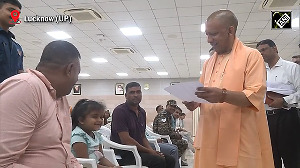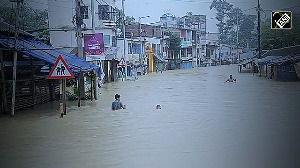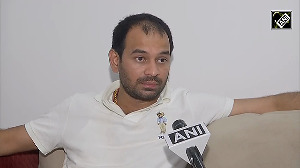Reserve Bank of India on Friday said the inflation for the 2004-05 will be lower than estimated 6.5 per cent and the economic growth will be higher than projected 6-6.5 per cent.
"The inflation will be lower than what was anticipated in November and growth higher than what projected in November" RBI Governor Y V Reddy told reporters on the sidelines of the seminar organised by Fixed Income Money Market and Derivatives Association of India in Mumbai on Friday.
RBI in the mid-term review of annual policy 2004-05 had raised inflation forecast to 6.5 per cent from five per cent estimated in May 2004 while it had lowered estimates for Gross Domestic Product to 6-6.5 per cent from 6.5-7 per cent earlier.
The central bank would conduct a comprehensive review of monetary policy in the third week of April, Reddy said.
On the Special Purpose Vehicle for funding infrastructure projects, the RBI Governor said the market was ripe for long term paper to fund special purpose vehicle for infrastructure projects.
The Union government has fixed the borrowing limit of SPV in 2005-06 at Rs 10,000 crore (Rs 100 billion).
Reddy, earlier addressing the delegates, said the macroeconomic developments, including 12th Finance Commission recommendations, had implications for fixed income markets.
Under the provisions of the Fiscal Responsibility and Budget Management Act, RBI would not be participating in normal circumstances in the primary market for government securities from 2006-07, he said.
Reddy said based on Finance Commission recommendations, state governments would approach the market instead of obtaining loans from the Centre. Several operational and other issues would have to be addressed in the management of the borrowing programme, he added.
He said RBI has convened a conference of state finance secretaries on April 8 to discuss operational issues and a roadmap relating to state borrowings.
Reddy said RBI has a stake in the fixed income and derivatives market as a monetary authority concerned with the transmission of monetary policy.
"We (India) are neither a closed economy nor an open economy. In reality, we are an opening economy and a careful management of the process of opening is critical for growth and stability", he said.






